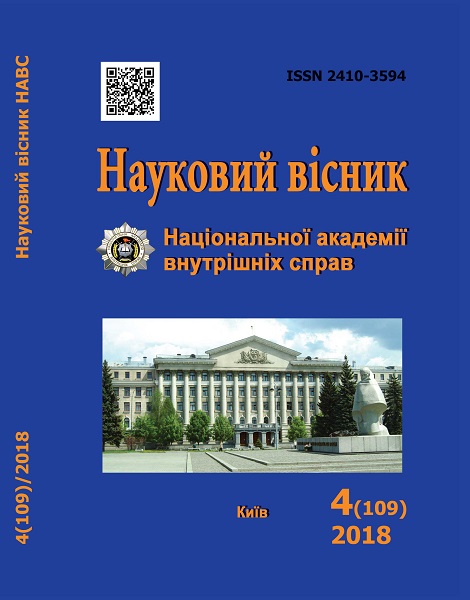Elements of Judicial Enforcement: General Theoretical Aspects
Abstract
The article is devoted to the consideration of certain general theoretical issues of the constituent elements of judicial enforcement in the context of the ongoing constitutional reform of justice. The purpose of the article is to provide a scientific understanding of the understanding of judicial enforcement, based on the principle of supremacy, its main elements and the fact that it is now the result of judicial enforcement, will be the official interpretation of legal norms. The connection of the principles of judicial law enforcement with the principles of law and law enforcement is disclosed. It is proved that the principle of the rule of law is a basic principle in judicial enforcement. It is concluded that the judicial precedent begins in the court of first instance and, if it is confirmed by the high level court, acquires the features of a persuasive precedent. It is substantiated that judicial enforcement is one of the most important types of forms for the implementation of a law, it (except for individual peculiarities) is characterized by general signs of state law enforcement. It was found that judicial enforcement is the last stage of the mechanism of legal regulation, when a special authorized court, the court, is involved in the participation of individuals in public relations. This stage of the mechanism of legal regulation has certain stages that are characterized by the presence of special subjects. It is concluded that it is generally accepted approach in which the principles of the rule of law, legality, validity, expediency, justice are applied to judicial enforcement. It is proved that the courts are not obliged to necessarily apply the conclusions on the application of the norms of law set forth in the decisions of the Supreme Court, but only take such conclusions into account when applying the norms of law. Also in such cases, we should talk about the identity of the actual and legally relevant circumstances of the case. It was concluded that the constitutional reform in terms of justice essentially changed the approach from the case-law nature of the conclusions of the Supreme Court of Ukraine (in the previous version of the procedural codes before October 3, 2017) to the recognition of such conclusions as a «convincing precedent». The mild impact of such conclusions was established due to their reasoning and authority of the issuing authority.
Downloads
Abstract views: 307 PDF Downloads: 385
- Authors reserve the right to authorship of their own work and transfer to the magazine the right of the first publication of this work under the terms of the Creative Commons Attribution License, which allows other persons to freely distribute published work with mandatory reference to authors of the original work and the first publication of an article in this magazine.
- Authors have the right to enter into separate additional agreements on non-exclusive dissemination of the work in the form in which it was published in the journal (for example, to post an article in the institution's repository or to publish as part of a monograph), provided that the link to the first publication of the work in this journal is maintained.
- The journal's policy allows and encourages the posting of articles by authors on the Internet (for example, in electronic storehouses of institutions or on personal websites), both before the submission of this manuscript to the editorial office and during its editorial processing, as this contributes to the creation of a productive scientific discussion and positively affects the efficiency and dynamics of citing the published work.




